He is arguably one of the most famous murderers in human history. Ever since his involvement in the slaying of Julius Caesar, writers and artists have reinterpreted and reimagined Brutus endless times. Different people consider him a hero, a villain, or something in between. Actors have made their name by portraying him onstage and onscreen. He’s even inspired others to act as he did, for better or for worse. And now, we here at Factinate have assembled a list of facts about this infamous traitor's life, legacy, and impact upon humanity.
1. A Cursed Name is Given
Marcus Junius Brutus was born in 85 BC. He was the second person, after his father, to bear that name. After his uncle adopted him (more on that later), he briefly changed his name to Quintus Servilius Caepio Brutus, but that didn’t last for long.

2. Setting an Example
Brutus descended from one of the most prestigious families in all of Rome. Brutus’s ancestor, Lucius Junius Brutus, assisted in the overthrow of an Etruscan king who ruled Rome. Lucius literally had the moniker “the founder of the Roman Republic". Does this mean that bringing down dictators was just a family tradition in Brutus’s family?
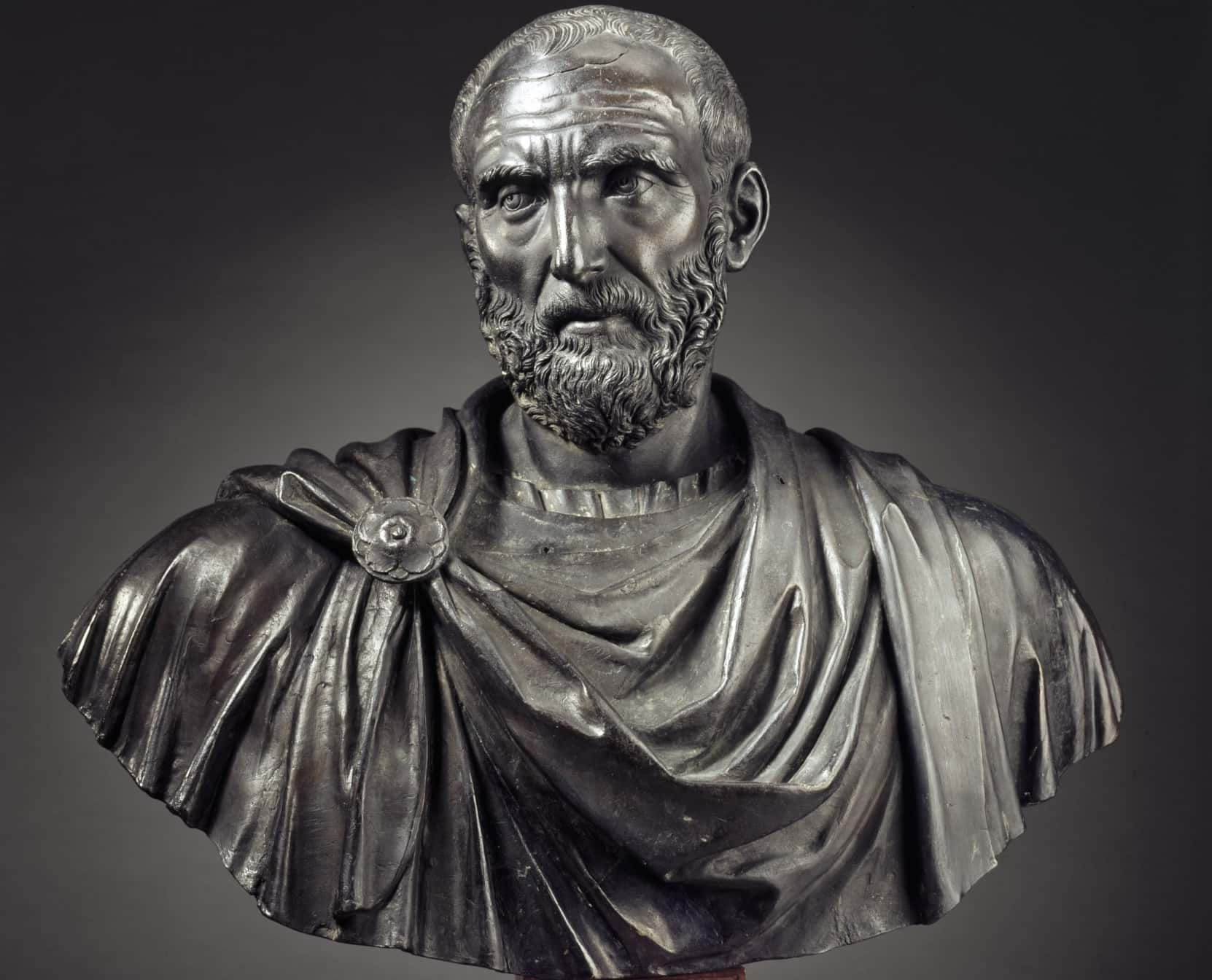
3. It Works Better Than “But Why?!”
The statement “Et tu, Brute?” is one of antiquity's most famous phrases. Julius Caesar allegedly uttered this when he recognized Brutus while several senators stabbed him. It isn’t known if Caesar really did say that as he was dying, though plays as far back as the 16th century (not just Shakespeare either) have put the immortal words in Caesar’s mouth. Furthermore, the meaning of these supposed last words may be far darker than people think.
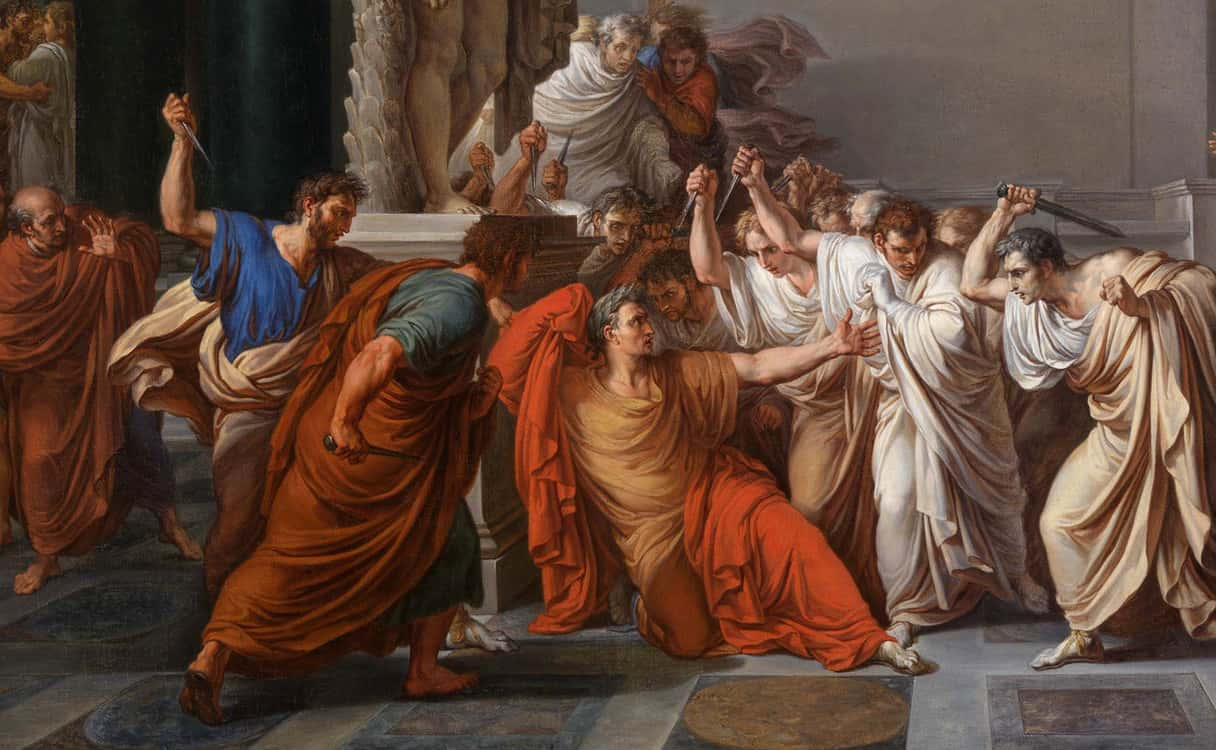
4. Tragic Paternal Backstory
Brutus’s father, Marcus Junius Brutus the Elder, was a tribune of the Roman Republic with a close connection to the Roman faction known as the populares. To skip the long lecture on ancient Roman politics, let’s just say that for a time, a man named Sulla was dictator of Rome, and when he passed on, there was a rather chaotic power vacuum.
One of the men who rose to power in this time was Pompey, a highly talented and accomplished Roman general. Brutus’s father fought against Pompey in 77 BC, to disastrous results. It’s not clear what exactly happened, but one way or another, Brutus’s father ended up in Pompey’s captivity until the general had him executed.
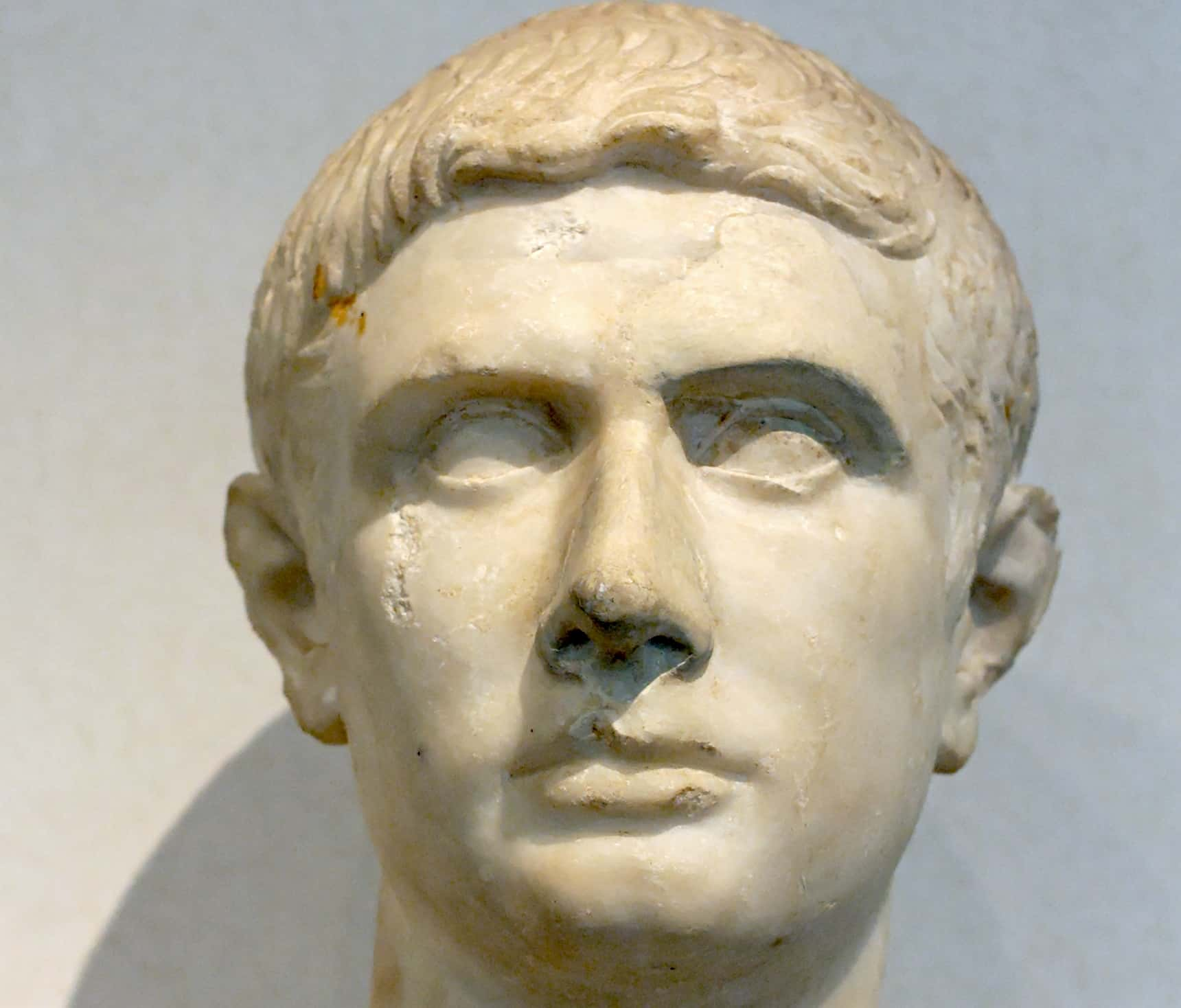
Wikimedia Commons, Marie-Lan Nguyen
5. Uncle Quintus
In 59 BC, Brutus' uncle, Quintus Servilius Caepio, adopted him. Caepio was a politician with combat experience, having served as tribune under Marcus Licinius Crassus, Crassus was one of the richest men in Rome. He also later joined the political alliance known as the First Triumvirate (the other members were Julius Caesar and Pompey).
Brutus greatly admired his uncle and changed his name in honor of his new father figure, at least for a time.

6. Money Never Sleeps
Brutus’s first entry into politics came when he was an assistant to another uncle of his named Cato the Younger. At the time, Cato was serving as the Roman governor of Cyprus. It was then that Brutus first built his fortune by lending money and taking advantage of high interest rates. If only he’d been born later in time, maybe he might have been the real-life Gordon Gekko?
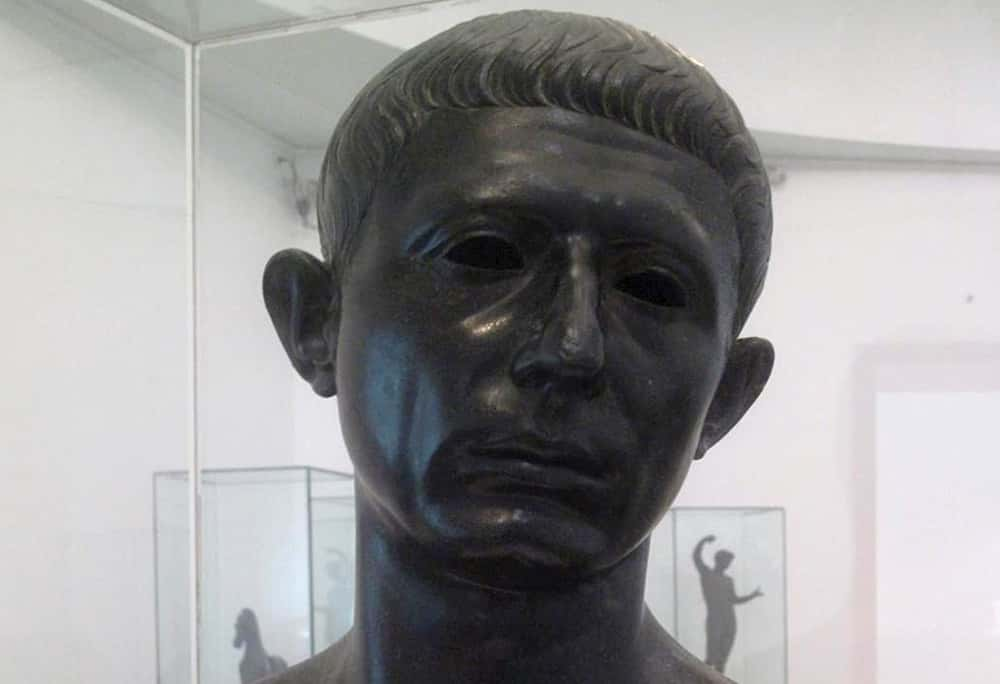
7. The Rich Getting Richer
By the time Brutus came back to Rome from Cyprus, he was a rich man. This wealth, plus his prestigious family, made him an attractive bachelor. At some point in time (it isn’t known when exactly), Brutus married Claudia Pulchra, the daughter of a powerful Roman politician. This only continued to further Brutus’s career within Roman society.

8. This Doesn’t Sound 100% Accurate…
As you can imagine, Brutus’s reputation as an assassin stretches into the modern day. He has appeared in the Assassin’s Creed video game series twice, though never as a playable character. Assassin’s Creed: Brotherhood drops the shocker that Brutus was a member of the Roman Brotherhood of Assassins. Players can gain his dagger and armor as an in-game reward.
Brutus also appears in Assassin’s Creed Origins, which features a reenactment of Caesar's demise.

9. As the Bard Says
In 1599, William Shakespeare released his take on Brutus’s slaying of Julius Caesar. Notably, it was the first of his plays to be performed at the famous Globe Theatre. Though titled Julius Caesar the play nevertheless features Brutus as the protagonist (or antihero, depending on how you view him), instead of the titular Caesar.
Brutus is portrayed as a troubled man with conflicting loyalties who rationalizes his way into fatally stabbing Caesar. The play even depicts him with dignity and principles. Mark Antony himself calls Brutus “the noblest Roman of them all” due to his unselfish reasons for slaying Caesar.

10. Beware the Elitists
We already mentioned the First Triumvirate, the prestigious men who made up this alliance, and the impact that they had on Roman society. When Brutus first joined the Roman Senate, he was a member of a faction called the Optimates. This conservative faction opposed the radical amount of power wielded by these three powerful Romans (Crassus, Caesar, Pompey).
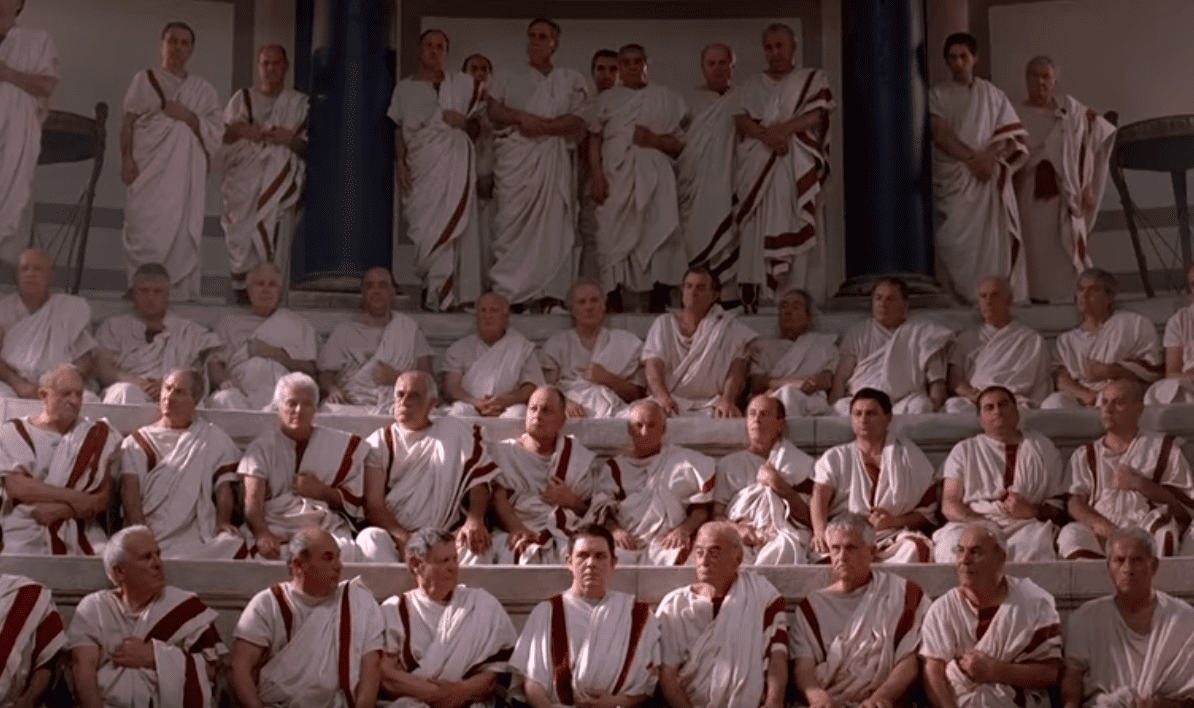
11. It’s On, Now!
By 49 BC, Marcus Licinius Crassus was deceased, and the remaining members of the First Triumvirate were at each other’s throats. The older general, Pompey, had the support of the Roman Senate, including Brutus and the Optimates, against the power-hungry Julius Caesar. As we all presumably know, Caesar defied the ancient law that no Roman armies could cross the Rubicon river into Italy, shocking Pompey and his supporters within the Roman Senate.
It was the start of a civil conflict within the Roman Republic, and Brutus found himself on the opposite side of Caesar (not for the first time, either).

12. Confusing Motivations
Remember what we said about Pompey being the man who ordered the execution of Brutus’s father? When the Optimates in the Roman Senate supported Pompey, Brutus didn’t hesitate in throwing his lot in with the man responsible for his dad’s demise. He even joined Pompey’s army and fought under his command just so he could fight against Caesar!
Those ancient Romans sure had a weird way with grudges, didn’t they?

13. You’re My Right-Hand Man!
Not only did Caesar forgive Brutus for taking Pompey’s side in the civil conflict, he quickly gave Brutus power in his new regime. Caesar gave Brutus the governorship of Gaul, the heart of Caesar’s power base. Caesar really had a serious lack of trust issues, is what we’re saying.

14. Traitor Most Vile
Brutus holds an infamous position in the epic poem Inferno by Dante. In the poem, the protagonists go on a journey through the Nine Circles of Hell, where the various historical figures are punished according to their sins. At the center of the final circle (the circle for traitors), the monstrous figure of Satan has three mouths, each one forever chewing on a traitor of the worst order.
These three traitors are Judas Iscariot, Brutus, and Cassius.

15. The Pursuit of Power
In the aftermath of his victory and ascension to power, the cowed Roman Senate gave Julius Caesar the honorary title of “dictator perpetuo” (dictator in perpetuity). Of course, Caesar wasn’t happy with the “honorary” part of that sentence. He spent the next while pushing further and further to assuming the title of king without actually using the word (since the Romans wouldn’t have stood for it).
A conspiracy formed amongst a group of men, many of them senators, calling themselves “Liberatores” (Liberators). Brutus was a key member of this conspiracy, but you already knew that part by now.

16. Almost Sounds Like a Shameful Hobby Among Enthusiasts
Given the dangerous idea of assassinating Julius Caesar, Brutus and his co-conspirators never met openly to discuss it, nor did they ever assemble in one single place, private or public. The group would meet, a few at a time, in each other’s houses to put together how they might catch Caesar at the right time and kill him.

17. Eat Your Heart Out, Dan Harmon
Speaking of Shakespeare’s connection to Brutus, the Bard referenced his own play in his masterpiece Hamlet. In one scene, Hamlet questions Polonius on his theater experience. Polonius replies that he portrayed Caesar on stage and was “killed” by Brutus. Not only is this a sly joke on the fact that Hamlet will later fatally stab Polonius, a la Brutus, but there was also a meta-joke concerning the actors themselves.
During Shakespeare’s lifetime, Richard Burbage and John Heminges portrayed Hamlet and Polonius, respectively. These men had also played Brutus and Julius Caesar, respectively, in Shakespeare’s Julius Caesar. So not only did Burbage “kill” Heminges in two different plays, they referenced the first play in the middle of the second one!
We can only imagine the laughs that such an inside would have gotten back then.

18. Keeping it in the Family
It’s worth pointing out that Porcia, Brutus’s second wife, was the daughter of Brutus’s uncle, Cato the Younger. Brutus had worked as an assistant to Cato in Cyprus, and like Brutus, Cato had sided with Pompey against Julius Caesar. Unlike Brutus, however, Cato didn’t get off easy. He took his own life in 46 BC while he was on the run.
Brutus married his beloved uncle’s daughter a year later.

19. What a Joke!
In case anyone’s unaware, the French-speaking world has a long-running comic book series titled Asterix after its main character. The series takes place during the time of Julius Caesar, with Asterix being a young warrior who lives in the last Gaulish village the Romans have not conquered. The series is a satire of the period, as well as featuring all kinds of meta-jokes and commentary towards future societies.
Given the setting of the series, it’s inevitable that Brutus shows up. He has appeared in several of the comic books, including as an antagonist in Asterix and Son. Brutus also appears in the film adaptations of Asterix, notably Asterix and Obelix vs. Caesar and Asterix at the Olympic Games.

20. This Didn’t Go as Planned…
After slaying Julius Caesar, Brutus and his co-conspirators ran through the streets of Rome, cheering that the dictator was gone and that the republic was free again. However, they received only silence in response; the Roman population had heard rumors of what had happened, and so they hid from the inevitable conflict which would surely erupt over the demise of someone as powerful and popular as Caesar.
In the end, they proved correct; although the Roman Senate took the side of Brutus and the other assassins, a new power faction formed with the Second Triumvirate, comprised of Mark Antony, Marcus Lepidus, and Octavian (later Augustus). For his part, Brutus fled for his life to Greece before rallying supporters of his own.

21. Steel Resolve
The slaying of Julius Caesar almost didn’t happen; the conspirators were ready to call it off at the last minute. Caesar was meant to go to the Senate, but several people, including his wife, believed that something bad was going to happen if he went and tried to delay him (to be fair, they were completely right).
Waiting for Caesar to arrive, the conspirators panicked and were ready to give up. It was Brutus, however, who insisted that they stick to the plan no matter what.

22. Same Lines, Different Actors
As you can imagine, there have been countless performances of Shakespeare’s Julius Caesar over the years, leading to all sorts of actors playing Brutus. Among these actors are Denzel Washington, Orson Welles, Jamini Kumar, Harriet Walter (in an all-female take on the play), and Junius Booth Jr., the brother of John Wilkes Booth.

23. Early Days of Cinema
One of the earliest film depictions of Brutus occurred all the way back in 1911. Italian filmmaker Enrico Guazzoni released his silent black-and-white picture, Brutus, that year, featuring silent film star Amleto Novelli as the titular character. The film was successful, but Guazzoni’s later Roman history film Quo Vadis quickly overshadowed it.
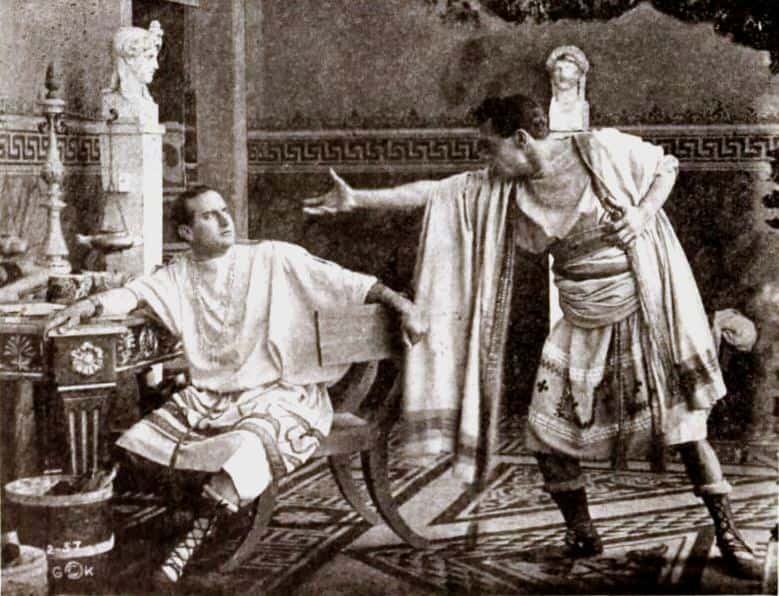
24. What’s Latin for “Don’t Tread on Me”?
The statement “Sic semper tyrannis” is often associated with Brutus. Translated, this means “thus always to tyrants,” implying that tyrants always get the violent end they deserve. Brutus allegedly spoke these words during or after Caesar’s assassination, though this is disputed. Interestingly, the phrase has taken a stronghold in American history, especially on both sides of the American Civil War.
One squadron of black troopers fighting for the North used that phrase as their motto, while the Confederacy used the statement in the song “Maryland, My Maryland". In case you’re curious, that pro-Confederate song is still the state song of Maryland.

25. One Assassin Inspires Another
Junius Booth Jr.'s time to play Brutus came in a stage adaptation which also featured his fellow actor-brother for the first time in their careers, with John Wilkes Booth portraying Mark Antony. Perhaps they were miscast, though, because Brutus’s example deeply inspired John Wilkes Booth's assassination of Lincoln.
In his journals, John claimed to have shouted “Sic semper tyrannis” after assassinating Abraham Lincoln. Before he was caught, Booth also wrote in his journal how astonished he was that he was being hunted down for doing the same thing that Brutus was honored for. That makes us suspect that he’d forgotten how Brutus’s story ended.

26. Seems Inevitable with Hindsight…
In another surprising connection between Brutus and John Wilkes Booth, Booth’s father was named Junius Brutus Booth after the famous assassin! We’re starting to consider looking through Booth’s family history for any Roman connections…

27. Let’s Try to Calm Down Here!
Brutus and his co-conspirators stabbed Julius Caesar a total of 23 times. But what isn’t often told about the incident is that his killers were so numerous, and set upon him in such a frenzy, that they ended up stabbing each other in the chaos! Brutus was himself wounded on one hand and both legs during the attack.

28. At Least He’s More Complex Than Edmure Tully
Arguably the most famous portrayal of Brutus on television was on the HBO series Rome. British actor Tobias Menzies (Game of Thrones, Outlander) played Brutus. In the show, the character is portrayed as a young, emotional man who loves his drink. He displays filial love for Caesar but also thinks that his dictatorship goes against what Rome stands for.
Although it omits or fictionalizes much of Brutus’s life, the series remains highly acclaimed, even for HBO.

29. A Lot in Common
As you probably know, Brutus’s main ally in the conspiracy to kill Julius Caesar was his brother-in-law, Gaius Cassius Longinus. One thing these men had in common was they’d each served under, and survived, a member of the First Triumvirate who wasn’t Caesar. Brutus had supported Pompey until the Battle of Pharsalus, while Cassius had been an officer under Marcus Licinius Crassus until the deaths of Crassus and most of his army at the Battle of Carrhae.

30. Bereaved Parents
Brutus had a son with his second wife Porcia, but the infant tragically perished young in 43 BC. We don’t even know the name of this ill-fated son.

31. The Silver Screen
In 1953, Joseph L. Mankiewicz directed an adaptation of William Shakespeare’s Julius Caesar. The film starred British actor James Mason as the main character Brutus, but top billing didn’t go to him, or even to the actor who played the titular character. Top billing went to Marlon Brando, who played Mark Antony. Brando also went on to earn an Oscar nomination for Lead Actor.
We can’t imagine Mason was particularly heartbroken over Brando losing that year.
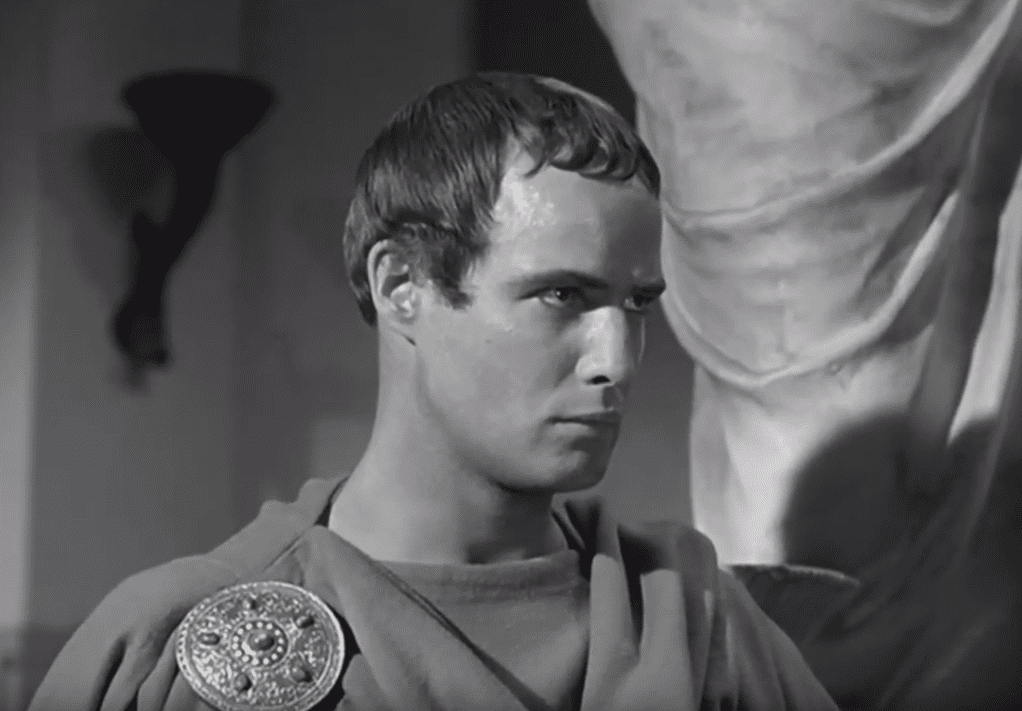
32. What are the Odds?!
Because the universe sometimes loves its irony, Brutus took Julius Caesar's life in the Theatre of Pompey, a building dedicated to the man whom Brutus had joined to fight Caesar, and whom Caesar defeated at the Battle of Pharsalus. You really can’t make this stuff up!

33. The Beginning of the End
Despite any attempts to compromise and avoid further bloodshed, the Liberators’ Civil War began in the aftermath of Julius Caesar’s demise. The main contenders were Brutus and Cassius versus Mark Antony and Octavian, with the conflict taking place in Macedonia from 42-43 BC. Most of the conflict occurred at the two Battles of Philippi.
The first battle was a draw, though Cassius took his own life because he feared defeat. The second battle took place not long after the first and resulted in an utter defeat for Brutus, who fled the victorious Antony and Octavian into the hills with his few surviving forces.

34. The Things We’ll Do for Love
The historian Plutarch wrote about a rather bizarre incident involving Brutus and Porcia. Allegedly, Porcia came upon her husband while he was contemplating the plan to kill Caesar. When he was reluctant to tell her about the details, she assumed it was because she was a woman. She wanted to prove her ability to be trusted, as well as her willingness to withstand physical torment if anyone interrogated her.
Plutarch claims that Porcia cut a deep gash in her thigh and didn’t treat it for at least a day. Once she mastered her agony, she returned to Brutus and showed her self-inflicted wound and explained that she could be trusted to withstand physical injury. Rather than react with shock or concern for her mental state, Brutus was instead deeply impressed and told her his secrets.
We’d ask the obvious question about how Plutarch could possibly have known about this event, but the idea that he could invent such a bizarre and twisted story is almost scarier than if it was true!

35. Widow or Widower?
It remains uncertain how Brutus’s second wife, Porcia, met her end. The ancient sources can’t agree on anything about her demise. Plutarch claimed that Porcia took her own life by swallowing hot coals, while other sources argue that this is unrealistic and she more likely burned charcoal and perished from carbon monoxide.
These sources also don’t agree on whether she took her life before Brutus perished, or after, with a further complication being that she might have thought Brutus was deceased when he really wasn’t. Cicero’s writings, meanwhile, claim that she succumbed to a sickness while Brutus was on the run after assassinating Julius Caesar.

36. Magnanimous in Victory
We’ve already talked about how Shakespeare’s Julius Caesar concludes with Brutus’s former enemies eulogizing over what a noble man he was, but the play isn’t that far from reality. Mark Antony famously ordered Brutus’s body to be wrapped in a mantle of royal purple. When a thief made off with the mantle, Antony had the thief found and executed.
Brutus’s body was cremated, and his ashes were brought to his mother, Servilia, who was allowed to live comfortably and peacefully until her own passing.
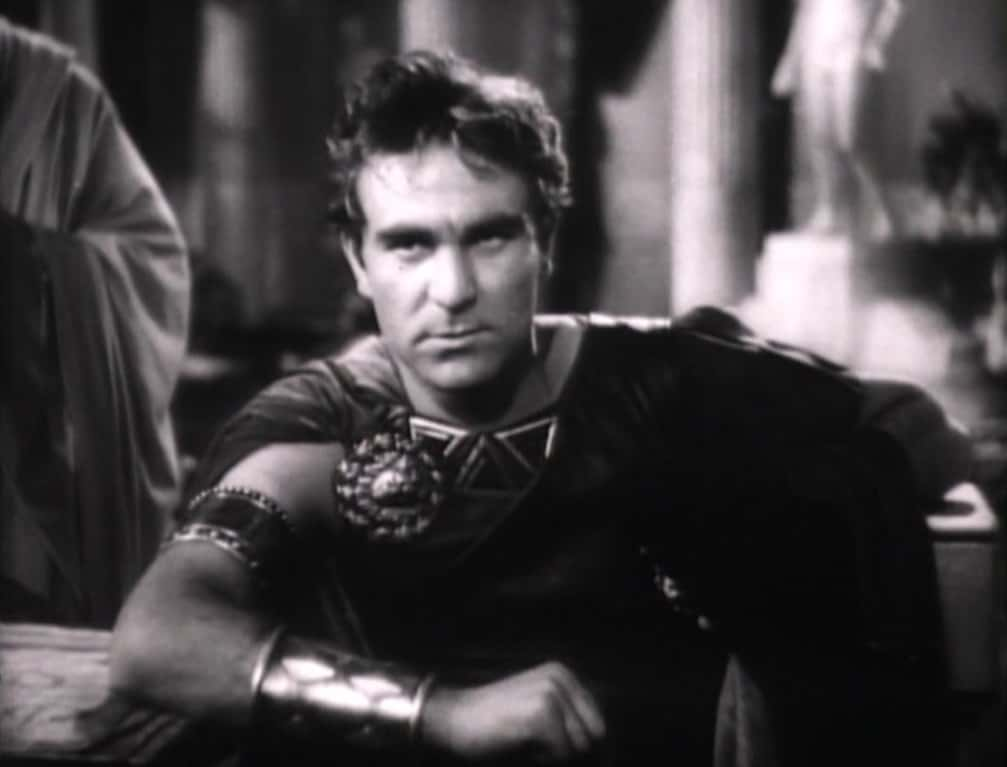
37. Insert Mother-In-Law Joke Here
In 45 BC, Brutus divorced his first wife, Claudia Pulchra, so he could marry his first cousin, Porcia Catonis. The divorce caused a scandal in Roman society because, in a rare move, Brutus didn’t bother to give any reason for his divorce other than that he wanted to marry someone else instead. Allegedly, Brutus’s mother was resentful of her son over this action and didn’t treat Porcia with any affection.
It’s also said, though, that she was jealous of the love and attention that Brutus showered on his new wife, but we won’t go any further down that kind of reverse-Oedipal thinking…

38. How You Look at it
The interesting thing about “Et tu, Brute” is how people interpret it either as a question or a statement. The most common version involves a devastated Caesar asking the question “You too, Brutus?” in disbelief as senators stab him. Another way you can look at it, though, is that Caesar stated “You too, Brutus” accusingly, predicting that Brutus would meet a bloody end as well.
If that was the case, Caesar was right. But then again, how many ancient Romans in positions of power ever had a natural death?

39. Someone Invent the Blood Test!
Some historical sources list none other than Julius Caesar as being Brutus's biological father, as if Brutus’s betrayal wasn't messed up enough. Caesar and Brutus’s mother, Servilia, were lovers for a time, and it might have led to Brutus’s conception. Admittedly, this claim is unlikely to be true, as Caesar was only 15 at the time of Brutus’s birth, but then again, he would hardly be the first or last 15-year-old baby daddy!

40. Where’s Maury When You Need Him?
Speaking of the suspicions that Julius Caesar was possibly Brutus's biological father, we should point out that Caesar himself wasn’t fully sure of the truth. Possibly because of this uncertainty, Caesar always treated Brutus fondly, and even when Brutus was on the opposite side of a battlefield, Caesar gave express orders to his army that Brutus was to be taken alive, no matter what.
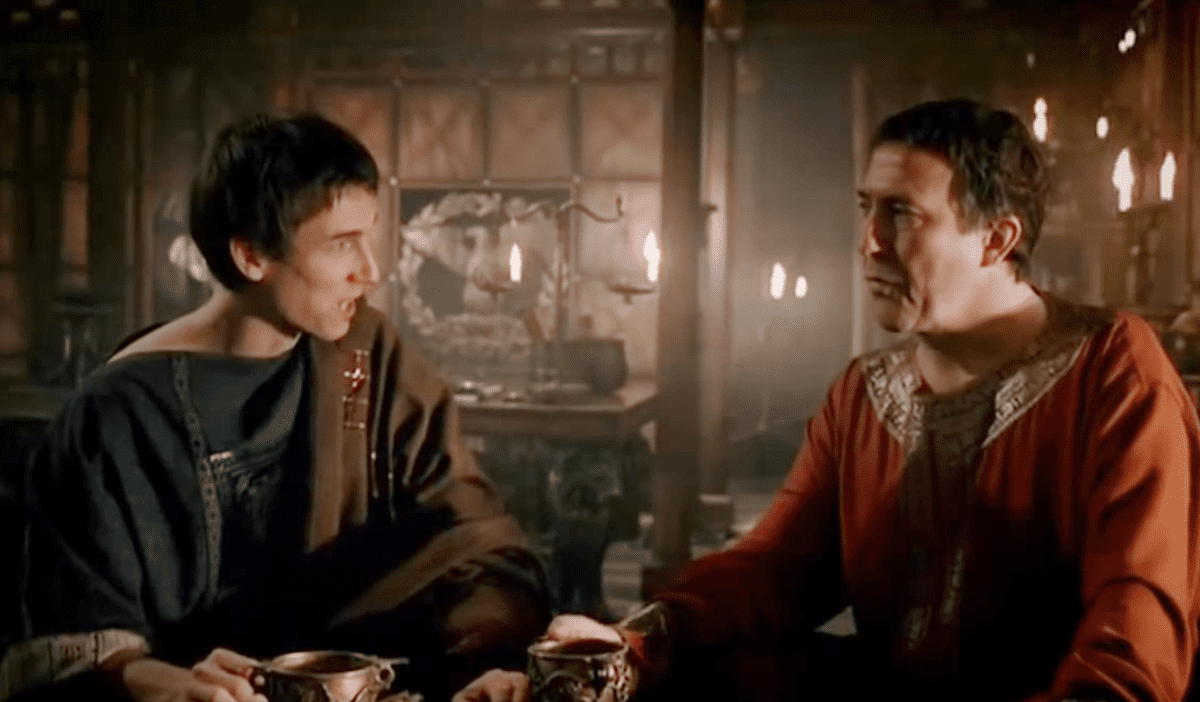
41. What’s a Battle in the Face of Possible Paternity?
In the summer of 49 BC, Julius Caesar and Pompey’s armies squared off at the Battle of Pharsalus in Greece. Despite the support of Brutus and the rest of the Optimates, Pompey was defeated. He went on the run, eventually hiding out in Egypt before the locals executed him to placate Caesar. As for Brutus, he promptly decided to fall upon Caesar’s mercy rather than flee.
Still half-convinced that Brutus might be his biological son, Caesar forgave Brutus immediately, presumably while awkwardly asking him if he wanted to toss the pigskin around for old time’s sake.
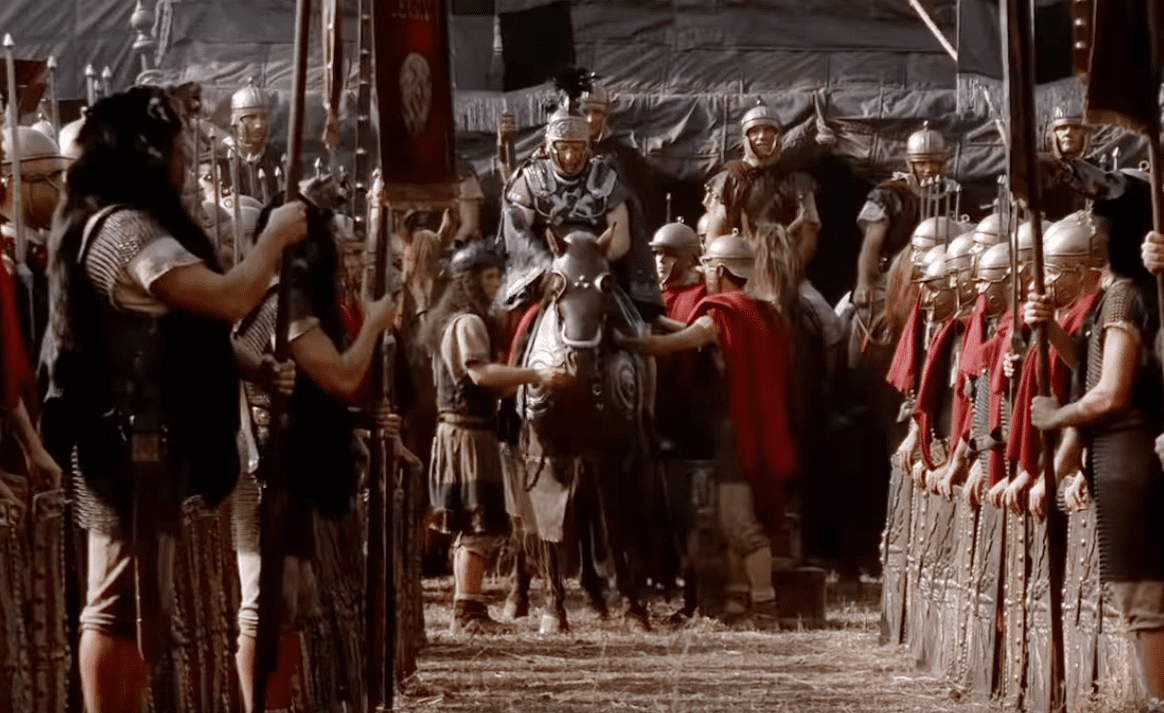
42. Last Moment Alive
Hiding in the hills with his few followers after the Second Battle of Philippi, Brutus realized that the end had come for him, and he bade two troopers hold his sword so he could run into the point. According to Plutarch, Brutus’s last words were a curse upon Mark Antony, one of the men responsible for his demise. Whether that is true or not, Brutus met his end on October 23, 42 BC, at the age of 43.

Sources: 1, 2, 3, 4, 5, 6, 7, 8, 9, 10, 11, 12, 13, 14, 15, 16










